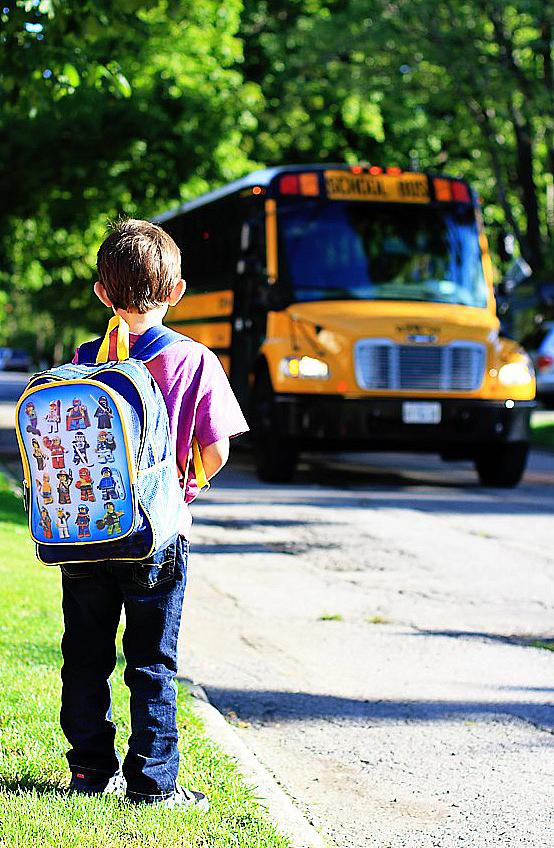Analysis: 'Willful Defiance' School Suspensions Have Health Impacts

(State Farm/Flickr)
In the 2012-13 school year, almost 260,000 student suspensions in California public schools — more than 40 percent of the total — were for "willful defiance" of authority. Willful defiance was the single most common reason for suspension and more students were suspended for willful defiance than for drugs, weapons and violence combined.
Mirroring a nationwide shift from "zero tolerance" policies that grew out of the War on Drugs, some large school districts in the state, including Los Angeles and San Francisco, have banned willful defiance suspensions. Legislation that would end the practice statewide, AB 420 by California state Assemblymember Roger Dickinson of Sacramento, stalled during last session due to fears of another veto by the governor but will be considered again this year.
The Health Officers Association of California, representing the physician health officers in 61 counties and cities, commissioned Human Impact Partners to analyze the results of banning willful defiance suspensions. The analysis shows that such suspensions are not just an educational issue, but have far-reaching impacts on public health and well-being that affect all Californians.
It is well established that education is important for health. People with more education live longer, have healthier behaviors like exercising and not smoking, and earn more money. According to the analysis:
Research shows convincingly that children who graduate are more likely to live longer, be healthier, have healthier children, and be more successful in their future careers. They are less likely to abuse drugs or alcohol, suffer depression, become teen parents, run afoul of the juvenile justice system, commit crimes or be incarcerated. Each of these factors is an important determinant of health and well-being, not only for individuals but for society as a whole.
The link between suspension and drop out has been less clear, but suspension can lead to students becoming discouraged or falling behind in their studies, both of which make it more likely that they will drop out. Suspension and expulsion can cause stress, depression and other problems that affect not only the health and well-being of students but their families. Suspended students are also more prone to entering the "school-to-prison pipeline" – at higher risk of entering the juvenile justice system, committing crimes, and being incarcerated as an adult.
Although there is no California-specific data on the relationship between suspension and dropping out, assuming that California trends are similar to those of other states, the analysis found:
• If each of the more than 340,000 California students suspended for willful defiance in 2011-12 were suspended only once (a conservative assumption), 110,000 of them will drop out. Sixteen percent of students with no suspensions drop out, while 32% of students with one suspension drop out, so willful defiance suspensions in that school year alone will be responsible for more than 55,000 additional dropouts.
• Of these willful defiance dropouts, 3,000 more students will be incarcerated at some point in their lives than they would have if these students had finished high school.
• Each high school dropout costs society an average of $5,200 due to lost tax revenues and higher incarceration costs. On the other hand, a high school graduate benefits the economy by an average net fiscal contribution of $287,000. Thus, these willful defiance dropouts will ultimately result in a $16 billion loss to the economy.
• Applying national estimates for 18-to-24 year-olds living in poverty to California, within this set of willful defiance dropouts, 17,000 will live in poverty. This means 4,000 more young adult living in poverty than if they had finished high school. This disparity is likely to be even greater in California, where the poverty rate is the highest in the country.
• In California in 2011, the poverty rate among families headed by an adult lacking a high school diploma was 36.7%, whereas for families in which the highest level of education is a high school diploma, the poverty rate was 19.9%. Assuming these willful defiance dropouts become the main earners of their families, 9,200 more families would live in poverty than if those dropouts had finished high school.
The analysis says that zero tolerance policies such as willful defiance suspensions are harmful to many students for the rest of their lives. In addition, an analysis Human Impact Partners completed in 2012 showed that zero tolerance policies are ineffective at stopping future infractions. In contrast, the restorative justice discipline approach, which focuses on repairing the harm causes by unwanted behavior and getting students to take responsibility for their actions, is proving to be far more effective, not only in dealing with the root causes of disciplinary problems but in keeping students in school.
Celia Harris is a project director with Human Impact Partners, an Oakland-based nonprofit research organization that studies the health and equity impacts of public policy.
Related posts:
Epidemic of Suspensions Poses Health Concerns
